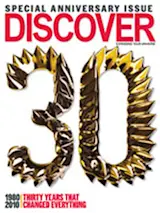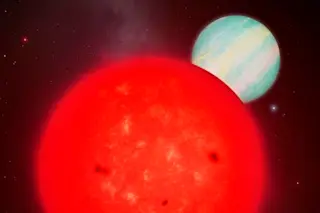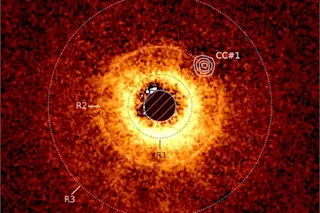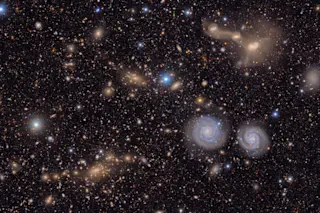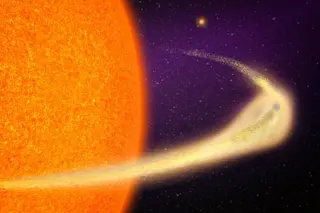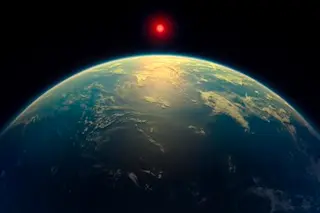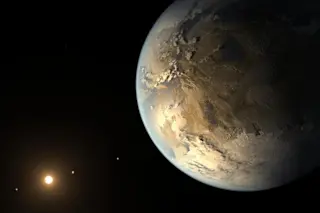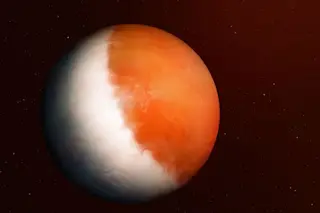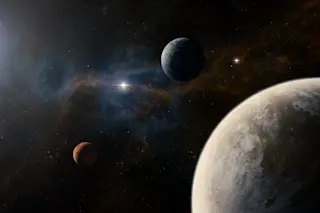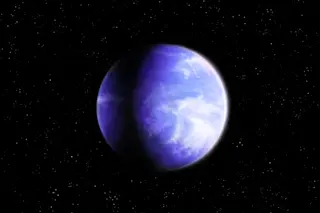This article is part of DISCOVER's 30th anniversary special section, including
11 eminent scientists'
predictions about the next 30 years. Share your thoughts on the future of science at the Science Not Fiction blog.
Do we have company in the universe? In the next three decades we’ll probably know. I’m confident that we’ll detect signs of life on exoplanets (planets around other stars) by observing the atmospheres of the planets that we’re detecting now—especially those similar to Earth in mass and orbit—and finding oxygen and other chemical signatures there. We may not discover technological civilizations in the next 30 years, but we should be able to find evidence for simple life-forms. To reach that goal, we’ll need a space mission that can obtain spectra of exoplanets’ atmospheres. This involves blocking out the light from the central star and bringing light from the dim planets into focus.
The detection of the first exoplanet around a sunlike star in 1995 helped us fine-tune our techniques. Every year since then, we have discovered more planets than the year before (more than 450 to date). A parallel thing could happen in the search for extraterrestrial life: After we find one example, we’ll hone our strategies to be smarter and more efficient. I’m also hopeful that future Mars probes, digging under the planet’s surface, might be lucky enough to uncover fossil life or chemical signatures of life. A comparison with the most primitive life-forms on Earth will tell us a lot about whether the spark that changes prebiotic chemistry into life is common or rare.
I hope that vigorous space exploration continues and that humankind will have a space station that resides between Earth and the moon. Outside the gravitational field of Earth, we could launch robotic spacecraft to other destinations in our solar system. Further ahead I’d like to see tiny spacebots —smaller than your cell phone—travel outside our solar system to the nearest star system, Alpha Centauri. By keeping the mass of those spacebots low, we could more easily accelerate them. We could launch an army of these tiny bots and have them do what your cell phone does: take pictures and phone home.
Debra Fischer is an astronomer at Yale University. She has helped find about 160 exoplanets and was the first to discover a star harboring more than one.



